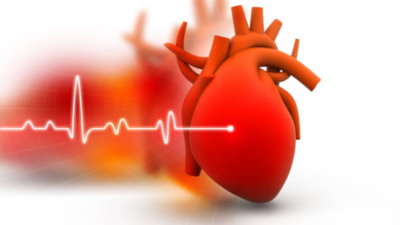When it comes to heart health, most people rely on the usual suspects , cholesterol numbers, blood pressure readings, maybe a stress test if things look off. But what if there’s a scan that could tell you your real heart attack risk long before symptoms show up? There is a quick, painless CT scan that looks for calcium buildup in your arteries (a major red flag for heart disease). It’s way more accurate at predicting future heart attacks than just looking at cholesterol alone. The kicker? Most people have never even heard of it. Whether you’re in your 40s and feeling fine or just curious about your long-term heart health, this scan might be the wake-up call you didn’t know you needed. Here’s what it is, how it works, and why it might just save your life.
What is the Coronary Artery Calcium Test ?
The CAC test is a simple, non-invasive CT scan (a type of X-ray) that looks specifically for calcium deposits in the coronary arteries the blood vessels that supply your heart muscle with oxygen-rich blood. These calcium spots are essentially hardened bits of plaque resulting from the buildup of fats, cholesterol, and other substances in your arteries (a process called atherosclerosis). The presence and amount of calcium in your arteries signal the extent of coronary artery disease (CAD), which is the main cause of heart attacks.
Poll
What do you think is the most important factor in assessing heart health?
Think of it this way: Your cholesterol test gives you clues, but it’s kind of like guessing what’s inside a wrapped gift. The CAC test is like unwrapping it to see if there’s actually something you should worry about inside your arteries.“A coronary calcium scan isn’t for everyone, but it’s the finest way for those who are uncertain about their heart disease risk to make better decisions about treatment and medications,” says Michael Blaha, M.D., M.P.H., director of clinical research at the Ciccarone Center for the Prevention of Heart Disease at Johns Hopkins.
Why is this test a game changer?
Many people rely on cholesterol levels (LDL, HDL, total cholesterol) and traditional risk calculators to estimate their heart attack risk. But these don’t always tell the whole story. The CAC test:Detects plaque buildup early often before symptoms appear.Helps predict your actual heart attack risk better than cholesterol numbers alone.Guides decisions on preventative treatment, especially whether or not you should start or continue statin medications (which lower cholesterol).Gives you a clear calcium score, a numeric value that correlates with your risk level — from zero (no calcium, low risk) to over 1,000 (very high risk).
Who should consider getting a CAC Test?
The test isn’t for everyone. Various health guidelines suggest considering it if you:
- Are between 40-80 years old.
- Have an intermediate risk of heart disease based on risk factors like age, blood pressure, smoking, diabetes, or family history.
- Are unsure whether to start statin therapy or want to weigh benefits versus possible side effects.
- Have a family history of early heart disease but otherwise seem low-risk.
Your healthcare provider can help you decide if this test makes sense for you. It’s not typically recommended if you have low risk or already have known heart disease, because other tests may be better suited then.
What does the research say?
Studies in the US consistently highlight how the CAC test improves risk prediction. For example, the MESA study (Multi-Ethnic Study of Atherosclerosis) showed that CAC scoring can better identify those at risk of heart attack who might have been missed by traditional risk calculators. The test also helps avoid unnecessary statin use in low-risk people scoring zero, reducing overtreatment.If you’re worried about your heart health but don’t have clear symptoms, and your cholesterol or risk scores seem “in the middle,” a CAC test can be a powerful eye-opener.Here’s something wild—Johns Hopkins researchers studied nearly 7,000 people to see how well we’re actually predicting heart risk. They looked at two methods: one used the usual risk factors like cholesterol levels, smoking habits, blood pressure, and diabetes. The other added in results from a Coronary Artery Calcium (CAC) scan—that quick CT scan that checks for calcium buildup in your heart arteries. Turns out, adding the CAC scan seriously sharpened the accuracy. According to a 2013 study published in the European Heart Journal, some people who were told they were at very low risk based on traditional factors actually had high calcium scores—15% of them, in fact. That’s a big deal. Even more surprising? Around 35% of people flagged as high risk had zero calcium buildup, meaning they might not be in as much danger as once thought. Bottom line: the CAC test can change how we see and treat heart risk—big time. It’s quick, painless, and offers a peek inside your arteries that cholesterol tests simply can’t. The real value? Knowing your risk can save your life by prompting early treatment or lifestyle changes — or putting your mind at ease if your arteries are clean.Disclaimer: This information is for educational purposes only and is not medical advice. Always consult your healthcare provider before considering a Coronary Artery Calcium test or making heart health decisions. Individual risks vary, and only a qualified professional can provide guidance tailored to your specific needs.

